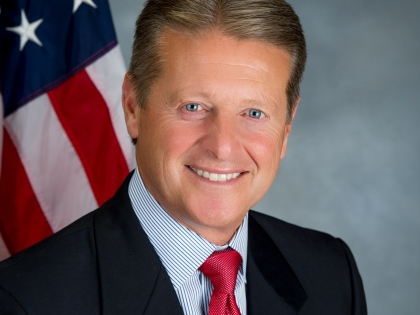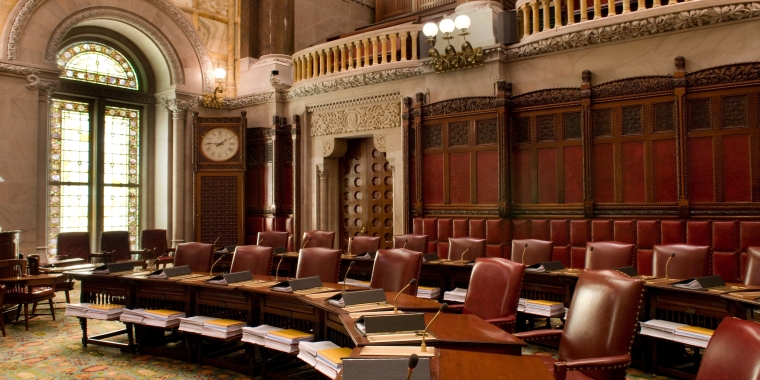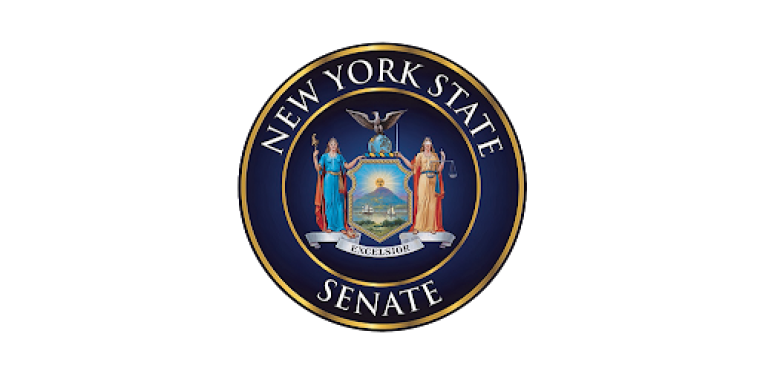
Gallivan Urges Governor to Nix Utility Tax Surcharge Extension From Budget
Patrick M. Gallivan
February 5, 2013
Senator Patrick M. Gallivan (R,C,I – Elma) joined with fellow members of the Senate Republican Conference and leaders of statewide business organizations to urge Governor Cuomo to remove the proposed extension of the utility tax surcharge from his Executive Budget. The 18-a surcharge, which has increased utility bills for every ratepayer in the state, is scheduled to expire on March 31, 2014.
“Extending this surcharge will cost ratepayers almost $3 billion. Small businesses, working families and seniors, all struggling to keep up with high energy costs, cannot afford this burdensome utility tax any longer,” said Senator Gallivan. “Allowing the 18-a assessment surcharge to expire will also help to create jobs and make New York more economically competitive.”
The proposed extension would cost energy ratepayers $509 million for this year and the following four years, as well as $255 million in state fiscal year (SFY) 2018-19. The total impact of the extension would be $2.8 billion, with most of the burden falling on small and large businesses, particularly manufacturers that use large amounts of energy. Gallivan and his colleagues urged the Governor to use the 21-day amendment process to remove the proposed extension from his budget plan. The actual impact on the SFY 2013-14 budget of ending the surcharge would be $236 million, a small amount in the context of a $136.5 billion budget.
According to figures from National Grid, the impact of the energy tax extension on a typical large business is estimated at $30,000 per year. The added cost on a typical small business would be about $540 per year and average household utility bills would increase by $55 per year.
The energy tax surcharge was imposed in 2009 under then Governor, David Paterson, on electric, gas, steam and non-municipal water services. The surcharge was intended to be a temporary measure that would expire on March 31, 2014. However, the 2013-14 Executive Budget proposes to extend the tax surcharge for another five years.
Joining lawmakers at the Capitol news conference were representatives of the Business Council of New York State, the National Federation of Independent Businesses, the Manufacturers Association of Central New York, the New York Farm Bureau and AARP. Other businesses groups, including Unshackle Upstate and the Long Island Association, also support the Senate’s call to end the utility tax surcharge as scheduled.
Brian Sampson, Executive Director of Unshackle Upstate, said: “New York businesses and homeowners continue to pay some of the nation’s highest energy costs, and state-imposed taxes such as the 18-a tax are a big part of those high energy costs. We have called for the repeal of this regressive, onerous and anti-economic growth energy tax since it was first enacted, and we strongly oppose any extension beyond its planned 2014 expiration.”
Julie Suarez, New York Farm Bureau Public Policy Director, said: “At a time when the prices of feed and fuel are sky high for our members, it is imperative for the state to allow the Article 18-a assessment step down to go forward to help contain rising production costs. Profit margins are thin at best for many of New York’s family farms, and keeping the 2% “tax” in place is not the business friendly approach that will help New York’s farms be more competitive. We appreciate the efforts of Senator Skelos and his conference to push for the rollback to continue as scheduled.”
Section 18-a of the Public Service Law authorizes an assessment on utility bills to fund the operations of energy-related agencies and authorities such as the Department of Public Service and the New York State Energy Research and Development Authority. In 2009, the assessment increased from one-third of a percent to one percent, and added an additional one-percent surcharge, making for a total five-fold increase on all ratepayers. The additional revenue raised from the increase is deposited in the state’s general fund. Under the 2009 law, the increase is scheduled to be reduced to one percent in SFY 2014-15.
Share this Article or Press Release
Newsroom
Go to Newsroom
Highway Funding Must Be a Priority
April 4, 2024


